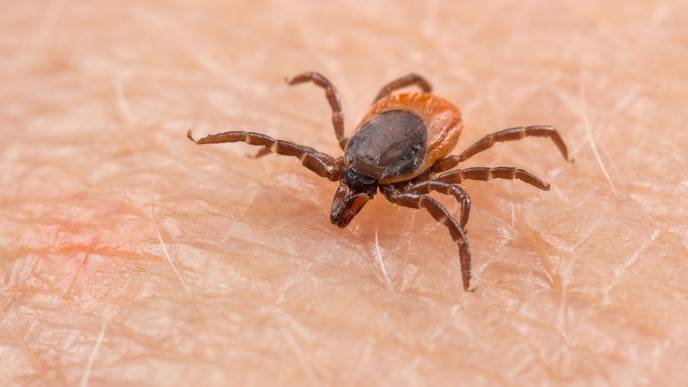CDC Funding Propels Penn State as Leader in Addressing Vector-Borne Diseases

07/24/2023
UNIVERSITY PARK, Pa. — The Centers for Disease Control and Prevention (CDC) has named Penn State as the lead institution for one of five new Vector-Borne Disease Regional Training and Evaluation Centers. These centers are aimed at enhancing national efforts to prevent and control vector-borne diseases.
The CDC awarded a total of more than $7.1 million to Penn State and four other entities for the first year of the centers. Penn State will receive $1.25 million in the first year, with a projected total of $6.25 million over five years.
Vector-borne diseases are transmitted by vectors such as mosquitoes, ticks and fleas, which spread pathogens through their bites. Lyme disease is the most common vector-borne disease in the United States. Reports on this tick-borne pathogen indicate that Pennsylvania ranks No. 1 in the country for the number of Lyme disease cases per year. The goal of the new Regional Training and Evaluation Center is to reduce Lyme and other vector-borne diseases by understanding the needs of at-risk groups, targeting training for these groups and evaluating the impact at reducing disease burdens.
Project director Erika Machtinger, associate professor of entomology in the College of Agricultural Sciences and leader of Penn State Extension’s vector-borne disease team, noted that arthropod vectors are a growing threat to public health and agricultural systems worldwide.
“In the United States, vector-borne diseases have tripled in the past 13 years,” she said. “There is a critical need for effective, targeted messaging on vector prevention and control strategies, and a need to evaluate current prevention and control methods.”
As director, Machtinger will manage student and professional training and evaluation programs. With eight years of experience evaluating tick-control tools in the northeastern U.S., Machtinger has received national recognition for her teaching and accomplishments in extension education. She established the Penn State Extension vector-borne disease team in 2019 to address the growing crisis in Pennsylvania. This team has been recognized nationally as the first of its kind.
“Penn State Extension is a leader in transformative education, a premier extension system in the United States and well-positioned to support and elevate the output of the VectorED Network,” Machtinger said. She added that the foundation of the VectorEd Network is to leverage the Cooperative Extension System across regions to target audiences most affected by vector-borne diseases.
Machtinger explained that the project will focus on increasing vector-borne disease education program capacity in a large part of the eastern U.S. This will entail training professionals in academia, government, health services, nongovernmental organizations and the private sector by leveraging and expanding existing educational infrastructure.
Throughout this five-year regional project, Penn State Extension will collaborate with counterparts at Ohio State University, the University of Tennessee and the University of Delaware.
Emily Struckhoff, vector-borne disease program specialist with Penn State Extension, will serve as the Extension training director for the network. She will oversee expansion and development of extension programming related to vector-borne disease, including training for pest and vector professionals, veterinarians, and academic professionals.

Facebook Comments